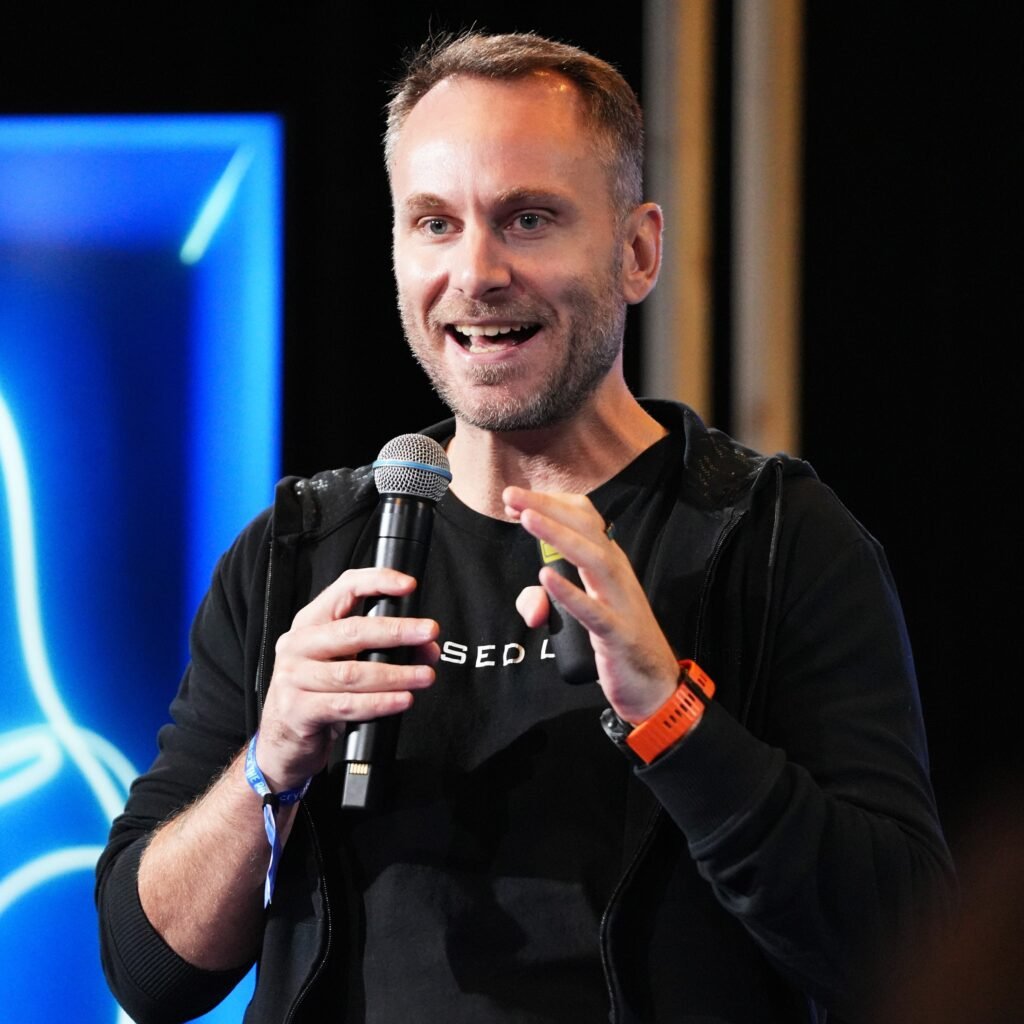
Paolo Ardoino, the new CEO of crypto company Tether, is grappling with a difficult but enviable problem: how best to spend billions of dollars. Recently flush with cash, Tether is pushing into unfamiliar new fields, like AI. Ardoino’s ambitious plan is to mount a challenge to Microsoft, Google, and Amazon.
Tether, which is incorporated in the British Virgin Islands, is among the world’s largest crypto businesses. The majority of its revenue comes from its stablecoin, USDT, which is pegged to a dollar valuation by a basket of cash and other assets held in reserve.
The model is relatively simple: Tether receives US dollars in exchange for tokens that customers can use to trade freely in the crypto market. It keeps some of those dollars in cash, trades most for interest-bearing securities, and loans some out. If ever a customer wants to exchange a USDT token for the dollar it represents, Tether draws from the pot, but in the meantime it generates income from the assets it holds.
Tether’s reserve consists largely of short-term US government bonds, the income from which is tied to the prevailing interest rate, meaning that the company has become increasingly profitable as central banks have raised rates in response to inflation. Tether recently reported $5.2 billion in profit for the first half of 2024, from a $118.5 billion reserve.
Under Ardoino, who took the role of chief executive in December after serving for six years as CTO, Tether is looking for something to do with all that spare change. Some of the money has gone toward building a buffer for the USDT reserve, says Ardoino, but the rest is being plowed into the company’s new venture investment division, Tether Evo. The company has already taken a majority stake in neural implant technology startup Blackrock Neurotech, and has invested in a data center operator, Northern Data Group, whose infrastructure is used for training AI models.
Tether has courted its fair share of controversy. In 2021, the company reached a $41 million settlement with US regulators, which had accused it of making misleading statements about the composition of its reserve. In 2023, Tether was alleged to have used fraudulent means to obtain banking services early in its history. Also, the UN and blockchain analytics firms have alleged that USDT has become a favored tool for money laundering, terrorist financing, and other illicit activity, though Tether disputes the characterization.
Content retrieved from: https://www.wired.com/story/tether-ceo-paolo-ardoino-crypto-ai-interview/.






